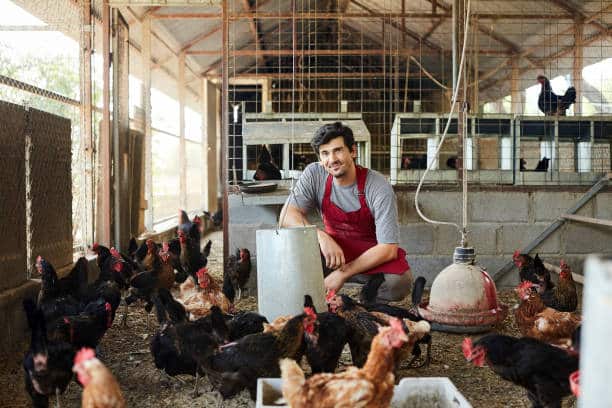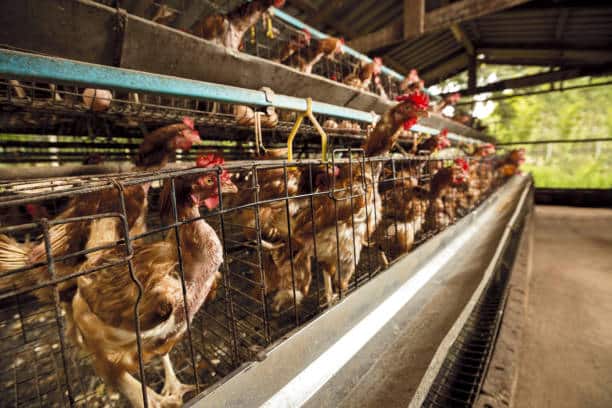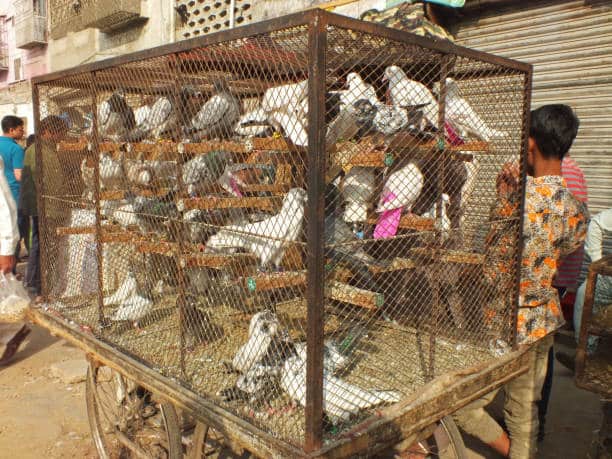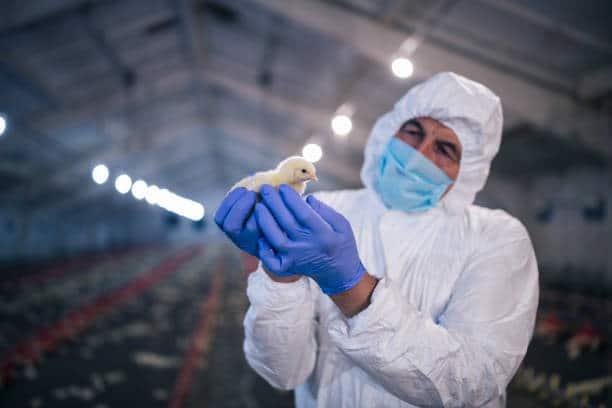Have you ever thought about starting your own poultry business in Nigeria? If you love working with animals and seeing your hard work turn into profits, poultry farming could be your perfect opportunity.
It’s a business with great potential, considering the high demand for poultry products like chicken and eggs across Nigeria. Whether you’re a beginner or just curious about poultry farming, this guide will walk you through every step of the process.
Starting a poultry farm doesn’t require a massive capital investment, especially when you’re looking at small-scale operations. Many people have successfully started small poultry farms with minimal money and have grown them into profitable businesses.
The best part? You can start small and scale up as you gain more experience and as the market demands more products. All you need is a clear plan, determination, and the right knowledge to set yourself up for success.
In this article, we’ll take a deep dive into how to start your small-scale poultry farm in Nigeria. From choosing the right breed of birds to setting up your farm, feeding, and even selling your products, you’ll get step-by-step instructions that are easy to follow. So, let’s get started and see how you can turn your poultry farming dream into a reality!
What is a Small-Scale Poultry Business?
It’s a sustainable, low-investment agricultural venture focused on the breeding, rearing, and marketing of poultry in limited space, using cost-effective methods to generate steady income, improve food security, and support local economies.
Related Posts:
- Agricultural Business Ideas 2025 update: Money making Clue
- How to Start a Catering Business
- How to Start a Successful Food Truck Business
- 35 Low-cost Offline Business Ideas in Nigeria 2025

How to Start a Small-Scale Poultry Business in Nigeria
Step 1: Create a Business Plan for Your Poultry Farm
Before you buy a single chicken, it’s crucial to create a solid business plan. A business plan helps you clearly define your goals and gives you a roadmap for your poultry farm’s future. Think about what you want to achieve: Do you want to raise chickens for meat (broilers) or eggs (layers)? Your goals will guide how much space you need, the equipment to buy, and how you’ll market your products.
A business plan also helps you estimate your startup costs, so you know how much money you’ll need to invest initially. You’ll also need to think about how to cover the cost of feeding your birds, maintaining the farm, and paying for things like utilities.
As part of your plan, consider your market research, who will buy your eggs or chicken? Understanding your customers and competitors will help you identify your market and set competitive prices.
Lastly, remember that your plan doesn’t have to be set in stone. As you get started, you’ll likely learn new things, and your approach may change. The important thing is to start with a plan to keep yourself on track.
Step 2: Select the Right Poultry Breed
Now that you have your business plan, it’s time to decide on the type of poultry you’ll raise. In Nigeria, the two most common types of poultry are broilers (raised for meat) and layers (raised for eggs). Broilers are typically raised for about 6-8 weeks before they are sold for meat, while layers can produce eggs for up to 18 months or more.
When choosing a breed, make sure you consider both the climate and your target market. Some bird breeds are better suited to Nigeria’s hot climate and can thrive without too much special care.
Additionally, you’ll want to think about which type of poultry your customers want more, eggs or meat. For beginners, chicken is often the best choice due to its ease of care and high demand.
If you’re unsure about which breed to choose, you can start with a small flock of each type and see which one fits your business best. It’s always good to experiment and learn along the way.
.
Step 3: Secure a Suitable Farm Location
Choosing the right location for your poultry farm is essential for the success of your business. Your farm should be in a place where the birds can be protected from predators, such as wild animals or thieves. It’s also important to choose a site that’s well-ventilated and offers enough space for your birds to move comfortably.
The location should be easily accessible, with good road networks, so you can easily transport feed, equipment, and even your poultry products to the market. Access to clean water is another crucial factor. Without water, your birds won’t survive, so make sure your farm has a reliable water source. Ideally, your farm should be located away from residential areas to avoid complaints about noise and odor.
Lastly, think ahead, will this location allow you to expand your farm as your business grows? Make sure there’s enough space for future expansion.
Step 4: Understand Legal Requirements and Permits
Before you start raising poultry, it’s important to make sure you’re following the legal regulations in Nigeria. These rules might include zoning laws, health and safety requirements, and the need for permits to run a poultry business. Each state in Nigeria has its regulations, so it’s a good idea to check with local authorities about what’s required.
You may need to register your poultry business with the appropriate agricultural authorities to make sure you’re following safety protocols and that your farm is recognized as a legitimate business. This also helps you avoid fines or legal trouble down the road.
Make sure your farm is in compliance with health regulations as well. For example, you’ll need to implement good hygiene practices to ensure that your birds remain healthy and that your products are safe for consumers.
Step 5: Design and Build the Poultry Housing
Creating a comfortable living space for your birds is one of the most important steps in poultry farming. The type of housing you choose will depend on the scale of your farm and the type of birds you raise. There are several housing systems: free-range, semi-intensive, folding units, and intensive systems.
1. Free-range: Birds roam freely, with less investment in housing, but they may be exposed to more risks like predators.
2. Semi-intensive: A balance between free-range and intensive, where birds have limited freedom but are still housed in a secure environment.
3. Folding unit: Mobile coops that can be moved around, which works well for smaller-scale farms.
4. Intensive: The most controlled environment, where birds are housed in large, closed spaces with strict management.
No matter which system you choose, make sure your birds are protected from the weather, pests, and predators. Ensure proper ventilation to keep the air fresh, and make sure the space is large enough for your birds to move around comfortably.

Step 6: Purchase Poultry Birds and Necessary Equipment
Once your housing is ready, it’s time to buy your birds. You can purchase day-old chicks, pullets, or hens from reputable suppliers or hatcheries. It’s important to buy healthy birds from trusted sources to reduce the risk of diseases.
Along with your poultry, you’ll need to invest in equipment like feeders, waterers, heaters, and lighting. Good quality feeders and drinkers are essential for ensuring your birds get enough food and water. You’ll also need a system for cleaning and maintaining the farm to keep the birds healthy.
Having the right equipment from the start can save you time and effort in managing your farm, so don’t cut corners here.
Step 7: Feeding and Health Management
Feeding your poultry the right diet is key to ensuring they grow strong and productive. Poultry requires a balanced diet that includes proteins, carbohydrates, vitamins, and minerals. Commercial poultry feed is available, but you can also supplement it with locally sourced grains and vegetables to reduce costs.
Always ensure your birds have access to clean water. Without proper hydration, they can become weak and unhealthy.
In terms of health, regular vaccination and disease prevention are vital. You don’t want to lose your birds to diseases that could easily be prevented. Work with a veterinarian to create a vaccination schedule and ensure proper health management.
Step 8: Monitor Operations and Track Performance
As your poultry business grows, it’s important to regularly track how things are going. Monitor the growth rate of your birds, how much feed they consume, and how many eggs or meat products they are producing. Keep records of everything, from the costs of feed to sales figures. This will help you understand what’s working well and where you might need to make improvements.
Use your observations to adjust your methods and increase productivity. For example, if you notice that a certain feed type works better, switch to it to improve performance.
Step 9: Marketing and Selling Poultry Products
Once your birds are producing eggs or meat, you’ll need to find customers. Think about who would want your products, local markets, restaurants, supermarkets, or even individuals. Create a marketing plan to let people know about your farm and products.
You could advertise locally, use social media, or partner with nearby businesses to increase your reach. A strong customer base will help your farm grow. Building relationships with customers is just as important as producing quality products.

Step 10: Scale and Diversify
Once you’ve learned the ropes of poultry farming and your business is stable, you may want to scale up. Consider increasing the number of birds you raise or adding more variety, such as selling processed poultry products or even diversifying into producing organic eggs or fertilizer from chicken droppings.
Look for opportunities to partner with other businesses or join cooperatives for greater market access and better buying power. You can also consider checking PAN(Poultry Association of Nigeria) for more opportunities on your poultry farming journey.
Benefits of Starting a Small-Scale Poultry Business in Nigeria
1. High Demand for Poultry Products: Poultry products like chicken meat and eggs are always in demand in Nigeria due to the growing population and the increasing need for affordable protein sources. This creates a steady market for both small-scale and large-scale poultry farmers.
2. Low Startup Costs: Compared to other types of farming or business ventures, starting a small-scale poultry farm requires relatively low capital. With minimal investment in land, equipment, and birds, it is an accessible business opportunity for many Nigerians, especially those looking for low-risk ventures.
3. Flexible Business Model: A small-scale poultry farm offers the flexibility to choose between raising broilers (for meat) layers (for eggs), or even both. This allows farmers to cater to different segments of the market, maximizing their income potential.
4. Opportunities for Growth: As a beginner, you can start small and scale up your poultry farm as you gain more experience and profits. Expanding your flock or diversifying your product offerings (e.g., selling processed meat, organic eggs, or manure) can lead to more income.
5. Job Creation: Starting a poultry business provides employment opportunities not only for the farm owner but also for workers in various roles (feeding, cleaning, sales, etc.). This contributes to reducing unemployment and supporting the local economy.
Challenges of Starting a Small-Scale Poultry Business in Nigeria
1. Health and Disease Management: Poultry farming is prone to diseases like avian flu, Newcastle disease, and other poultry-related illnesses. Disease outbreaks can wipe out entire flocks, leading to significant financial losses.
2. Fluctuating Market Prices: The prices of poultry products can fluctuate due to factors like supply and demand, seasonal changes, and market competition. Farmers may face challenges in maintaining consistent income if prices drop unexpectedly.
3. Limited Access to Finance: Many small-scale farmers struggle with accessing affordable credit or funding to grow their businesses. Without sufficient capital, it can be challenging to expand, buy necessary equipment, or deal with unexpected expenses.
4. Poor Infrastructure: In some rural areas, access to reliable roads, water, and electricity may be limited, making it difficult to run a poultry farm efficiently. Poor infrastructure can hinder transportation, supply chain logistics, and overall farm management.
5. Feeding and Nutrition Challenges: Feeding poultry requires a proper balance of nutrients. The cost of quality poultry feed can be high, and sourcing the right feed can sometimes be difficult, especially if you’re working on a tight budget.

Solutions to Overcome These Challenges
1. Health and Disease Management: To prevent diseases, farmers should adopt strict biosecurity measures, such as limiting access to outsiders, disinfecting equipment regularly, and vaccinating birds on time. Working with a qualified veterinarian to create a health plan for your birds can reduce the risk of diseases. Regular monitoring of bird health is also key.
2. Fluctuating Market Prices: Diversifying your poultry products and finding reliable customers can help stabilize income. Additionally, consider working with cooperatives or larger businesses that can offer better pricing or buying opportunities.
Creating a direct-to-consumer sales strategy (e.g., through social media or local markets) can also help you avoid middlemen and control pricing better.
3. Limited Access to Finance: Explore government grants, agricultural loans, or cooperative funding options tailored for small-scale farmers. You can also partner with larger farms or investors who are willing to help fund or co-manage a portion of your poultry operation.
Keeping a solid business plan and accurate records will make it easier to apply for loans.
4. Poor Infrastructure: To cope with poor infrastructure, ensure your farm is located near good roads or markets. If utilities like water or electricity are scarce, consider rainwater harvesting or alternative power solutions (e.g., solar panels). You can also join a cooperative of other farmers in your area to share resources and costs for infrastructure improvements.
5. Feeding and Nutrition Challenges: To mitigate high feed costs, explore locally available, affordable feed ingredients, and experiment with mix-feeding methods.
For example, supplementing feed with kitchen scraps, grains, or farm by-products could reduce overall feed expenses. You can also grow your feed on the farm, which is a cost-effective solution for small-scale farmers.
How to Start a Small-Scale Poultry Business in Nigeria Frequently Ask Questions and Answers
1. Which poultry is most profitable?
The most profitable poultry for small-scale farming in Nigeria largely depends on your target market and the demand in your area. However, layers (egg-laying chickens) tend to be more profitable for long-term business because they provide a steady and consistent source of income from egg production.
Layers generally start laying eggs around 5-6 months of age and can continue producing for up to 18 months or longer, making them a reliable option.
On the other hand, broilers (meat chickens) can also be profitable, especially in markets where there is high demand for poultry meat.
They have a shorter growing cycle (around 6-8 weeks), meaning you can sell them quickly and generate faster returns. However, broilers require more attention to feeding and management to avoid diseases, which can affect profitability.
Ultimately, both types can be profitable, but layers tend to provide a more stable income stream, while broilers offer faster turnover and higher margins in the short term.
2. How much does it cost to start a small poultry farm in Nigeria?
The cost of starting a small poultry farm in Nigeria can vary depending on several factors, such as the scale of your operation, the type of poultry you want to raise (layers or broilers), and your location.
On average, to start a small poultry farm with about 100 layers or 200 broilers, you might need between ₦200,000 to ₦300,000. This cost would typically cover:
1. Chicks/poultry stock: ₦30,000 to ₦50,000 for 100 layers or 200 broilers.
2. Housing/coop: ₦40,000 to ₦80,000 for basic housing and fencing (this can vary depending on the quality of construction and materials used).
3. Feeding equipment and water systems: ₦10,000 to ₦30,000 for basic feeders and drinkers.
4. Feed: ₦20,000 to ₦50,000 for the initial feed, depending on the size of the flock.
5. Vaccines and medications: ₦10,000 to ₦20,000 to cover health management costs.
Additionally, ongoing costs such as feed, water, utilities, and labor will need to be factored into your operational budget. Keep in mind that costs will also vary depending on your location, the type of equipment, and how automated your farm is.
3. How many eggs can a hundred layers lay in a day?
On average, a healthy layer hen can lay one egg per day during its peak production period (usually 5-12 months of age). Therefore, 100 layers can produce around 100 eggs per day. However, egg production can be influenced by factors such as the breed of the hen, feed quality, environmental conditions, and health management.
It’s important to note that not all layers will produce eggs every single day. Some hens may skip a day occasionally, particularly during their molting period or if they are stressed. That said, a consistent production of around 80-90 eggs per day for 100 layers is a reasonable expectation over time.
4. What time of the day do chickens lay eggs?
Chickens generally lay their eggs in the morning, usually between 6 a.m. and 10 a.m., although it can vary slightly depending on the environment and light conditions. Hens are stimulated to lay eggs through the natural daylight cycle, so they are more likely to lay during daylight hours.
If your chickens are kept in a controlled environment with artificial lighting, they may lay eggs at any time of the day as long as they receive 14-16 hours of light daily. However, egg-laying activity is still most concentrated in the morning hours when the hens feel most active and comfortable.
Conclusion
Starting a poultry business in Nigeria can be a rewarding venture, especially if you take the time to plan, learn, and adapt as you go. It’s not a get-rich-quick business, but with patience and consistency, you can build a successful farm that grows steadily over time.
Always keep learning, track your progress, and stay committed to your goals.


